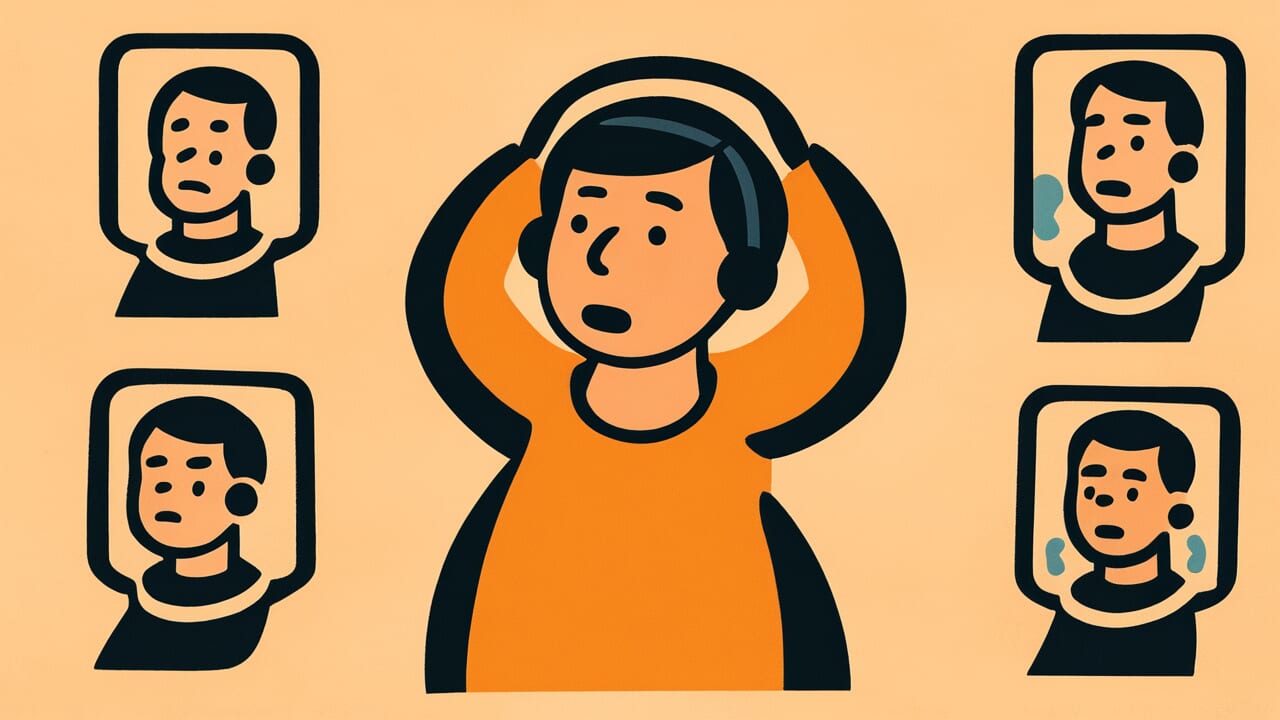How to Read “Three years for head-shaking, eight years for rolling”
Kubifuri sannen koro hachinen
Meaning of “Three years for head-shaking, eight years for rolling”
“Three years for head-shaking, eight years for rolling” teaches that any skill or art requires long years and steady effort to truly master.
Even something as seemingly simple as shaking your head takes three years. A more advanced technique like rolling takes eight years.
Through this comparison, the proverb shows that mastering anything takes more time than we imagine.
People use this saying when someone learning something new feels anxious because results don’t come quickly. It’s also used when someone feels frustrated with another person’s slow progress.
Even basic skills take a long time to learn. This proverb reminds us not to rush and to value steady accumulation of practice.
Modern society often values quick results and efficiency. But this proverb conveys a truth: real skill and deep understanding cannot be gained overnight.
Taking time is actually the only way to develop genuine ability.
Origin and Etymology
The exact first appearance of this proverb in literature is unclear. However, it’s believed to have been passed down through Japan’s traditional performing arts and martial arts communities.
The combination of “head-shaking” and “rolling” likely refers to the training process in traditional Japanese music like shamisen, or classical performing arts like Noh and Kyogen.
In shamisen performance, players shake their heads subtly to add expression to the sound and convey emotion to the audience.
This single head movement contains deep technique passed from master to student. Meanwhile, “rolling” refers to how you move on stage or how you recover from mistakes.
Even falling isn’t just about collapsing. It requires technique to fall beautifully and safely.
The specific numbers three and eight don’t indicate actual training periods. Rather, they symbolically express the difference in difficulty levels.
Shaking your head looks relatively simple, yet it takes three years. Rolling is more complex and involves danger, so it requires eight full years.
This contrast impressively conveys the depth of artistic skills and the long journey of training.
Usage Examples
- My daughter has been learning piano for six months and cries when she can’t play well, but “three years for head-shaking, eight years for rolling,” so I’ll watch over her patiently without rushing
- It’s natural for new employees to take time learning their job, so I want to train them with the spirit of “three years for head-shaking, eight years for rolling”
Universal Wisdom
Behind the proverb “Three years for head-shaking, eight years for rolling” lies a fundamental human impatience and our ancestors’ deep insight into it.
We humans tend to seek quick results when we start something new. Even when our minds understand, our bodies need time to remember.
There’s a bigger gap than we imagine between knowing something intellectually and actually being able to do it. We keep forgetting this obvious fact.
This proverb teaches the truth that mastery has stages. If even the basic movement of shaking your head takes three years, advanced techniques beyond that require even longer.
You cannot skip this accumulation process. Our ancestors knew people’s tendency to look for shortcuts, yet they counseled: “Time is still necessary.”
This saying also contains tolerance within the master-student relationship. Teachers feel frustrated with students’ slow progress. Students feel disappointed in themselves.
In such moments, these words give patience to both sides. Taking time is never wasteful—it’s actually the only way to develop real ability.
When AI Hears This
The threefold difference in learning time between shamisen head-shaking and rolling exists because the brain learns fundamentally different types of movement.
Head-shaking is reciprocal motion moving regularly left and right. The motor pattern the cerebellum memorizes is relatively simple.
Rolling, however, requires simultaneous control of the plectrum’s rolling timing, force adjustment, and transition to the next note.
Neuroscience research shows simple repetitive movements stabilize neural circuits after about 10,000 practice repetitions. Complex movements integrating multiple elements require over 30,000 repetitions.
Rolling means the cerebellum must simultaneously process three or more variables: “when to start rolling,” “how much force,” and “where to stop.”
This isn’t simply three times harder—the complexity of combinations increases exponentially.
What’s more interesting is that mastering rolling requires predictive control. You must predict the moment the plectrum touches the string and prepare the next movement before the sound emerges.
The cerebellum needs enormous trial and error to build this predictive model. Head-shaking can use feedback control, correcting after seeing results.
But rolling requires moving before results appear. This difference is the neurological reason eight years are demanded.
Lessons for Today
What this proverb teaches modern people is the importance of having courage not to rush.
In an era when we see others’ success on social media and feel pressured to produce immediate results, these words resonate deeply.
When you start something new, you don’t need to feel down because your first steps don’t progress quickly. It’s a natural process.
Just acquiring the basics takes a long time. So you don’t need to blame yourself for what you couldn’t do today.
What matters is whether you’ve moved even slightly forward from yesterday’s self.
This proverb also teaches tolerance toward others. When you feel a subordinate, junior colleague, or child is growing slowly, remember these words.
You yourself once took time to learn in the same way.
Taking time is never a detour. Rather, it’s the shortest path to developing genuine ability.
Today’s small step will eventually lead to a great leap. Without rushing but without giving up, treasure each day as you accumulate progress.
Beyond that lies real skill and confidence waiting for you.



Comments